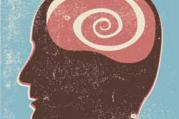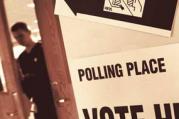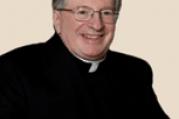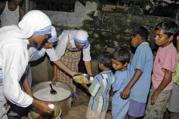Click here if you don’t see subscription options



In Robert Bolt’s play, A Man for All Seasons, the aging Cardinal Wolsey admonishes Sir Thomas More: “You’re a constant regret to me, Thomas. If you could just see the facts flat on, without that horrible moral squint; with just a little common sense, you could have been a statesman.” Wolsey’s heirs are quick to upbraid our latter-day Mores for their sentimental “moral squint” at public policy. Yet even statesmen of Wolsey’s stripe seldom see the “facts” flat on. Invariably, our perceptions betray our moral squints and prejudices.
Beginning with Leo XIII’s magisterial encyclical on the rights of workers to a living wage (Rerum novarum, 1891), the Roman Catholic Church looks at public policy through the moral squint of its social teaching. In the words of Benedict XVI’s “Message for the 92nd World Day of Migrants and Refugees,” “the Church sees” the suffering of our sisters and brothers “through the eyes of Jesus, who was moved with pity at the sight of the crowds wandering as sheep without a shepherd. (Cf. Mt 9:36).” How then, as citizens of faith, do we fulfill the Gospel’s prophetic mandate, in our present day?
Inspired by the great biblical injunctions of justice or righteousness (sedaqah), right judgment (misphat), and love of neighbor (agape) marking the reign of God, modern Roman Catholic social teaching turns to the distinctively modern idiom of human dignity and the rights that follow from it. The bishops elaborated on these rights in their 1986 pastoral letter:
Catholic social teaching spells out the basic demands of justice...in the human rights of every person. These fundamental rights are prerequisites for a dignified life in community. The Bible vigorously affirms the sacredness of every person as a creature formed in the image and likeness of God. The biblical emphasis on covenant and community also shows that human dignity can only be realized and protected in solidarity with others.
The appeal to human dignity “in solidarity with others” serves as a proximate foundation of human rights, permitting us to speak prophetically to the world. Yet in specifying the “minimum conditions” for the realization of such dignity, the bishops not only ratify, but enrich our notion of rights. For in the church’s social teaching, basic human rights encompass not merely the “negative” civil-political liberties enshrined in our American tradition—e.g., the freedoms from interference or coercion, such as our rights to freedom of worship, assembly and speech—but the “positive” socio-economic rights of security and subsistence, including employment, minimal health care and education: rights necessary for “a dignified life in community.” The theme is echoed in Faithful Citizenship (2007):
The basic right to life implies and is linked to other human rights to the goods that every person needs to live and thrive–including food, shelter, health care, education, and meaningful work. The use of the death penalty, hunger, lack of health care or housing, human trafficking, the human and moral costs of war, and unjust immigration policies are some of the serious moral issues that challenge our consciences and require us to act.
Free to Serve
Christian freedom, then, is not merely the freedom from interference by others, but our freedom for service to the community in love: the “end” of freedom is thus not merely private satisfaction, but the “common good” of every person. Solidarity, writes John Paul II, is the characteristic virtue of the common good. In modern Catholic teaching, the common good is conceived distributively, not en masse, as “the sum total of those conditions of social living” that protect and promote the dignity and rights of every person. The common good thus comprises the institutional protection of basic human rights including, a fortiori, the rights of effective participation of those historically denied place and voice.
While recognizing legitimate plurality in a democracy like our own, the common good sets a threshold for dignified life in community. In Faithful Citizenship, our bishops write, “While the common good embraces all, those who are weak, vulnerable and most in need deserve preferential concern. A basic moral test for our society is how we treat the most vulnerable in our midst” (2007: no. 50).
In other words, our moral entitlement to equal respect or consideration, in concert with the ethical ideal of the common good, justifies preferential treatment for those whose basic rights are most imperiled—in Camus’s phrase, our taking “the victim’s side.” Aquinas’s observation that a servant who is ill merits greater attention than a son who is not, is pertinent here: the fulfillment of equal basic rights, in materially dissimilar conditions, justifies a discriminate response. Precisely our concern for equal dignity and equal rights requires that we ask, Whose dignity and rights are unequally threatened? The church’s moral squint, her “option for the poor,” bids us ask: “Who is missing from the table of policy, whose voice suppressed?”
Finally, as our bishops observe, our solidarity, ordered to the common good, bids us to “be careful stewards of “God’s creation and to ensure a safe and hospitable environment for vulnerable human beings now and in the future.” How, then, does our “moral squint” guide our thinking on public policy? What lessons for voting might we draw?
Lessons for voting
A. Worthy persuasion: The norms that govern personal choice, such as my opposition to abortion or racism, likewise govern social choice, but differently. For personal choice, I must ask what moral rules, attitudes and beliefs form my conscience. And these rules, attitudes and beliefs may be distinctively religious. If I believe certain actions are wrong, especially if they are always wrong (intrinsically evil), I can never perform them—or intentionally (formally) cooperate in their performance—whatever the consequences might be. I am categorically obliged by the dictates of my conscience.
But suppose, as in politics, the question is not merely my obligation to form my conscience, but my obligation, as a citizen of faith, to influence yours. I must, as Dignitatas Humanae (nos. 7, 4) reminds us, engage in “worthy persuasion.” I must find the very best arguments that will persuade you. For those who share my Christian or Catholic beliefs, I will look to Scripture and Tradition, including magisterial pronouncements. In a religiously pluralist society, however, worthy persuasion will typically entail public reasons: reasons that we share, or should share, as citizens. And here we appeal to the modern lingua franca of dignity and human rights. On questions of immigration, abortion, or health care, for instance, we appeal to the basic human rights of the most vulnerable in our midst. As citizens of faith, then, we seek not to impose or legislate our particular morality, but rather to legislate morally, in accordance with the basic human rights that underlie the legitimacy of law and public policy.







Almost 10,000 Refugees in Orissa State
The superior general of the Missionaries of Charity said the situation in India’s troubled Orissa State is a call for Christians to be witnesses to the faith. “Disciples cannot be greater than their master,” said Nirmala Joshi, M.C., the successor of Blessed Mother Teresa of Calcutta, who founded the Missionaries of Charity. “God will strengthen his people to face this tough situation,” Sister Nirmala said on Oct. 1 after meeting with bishops and leaders of religious congregations in Orissa. The church leaders met to develop a plan to take care of the tens of thousands of Christian refugees who have been fleeing attacks by Hindu extremists since August. More than 30 people have died in the violence. Nearly 10,000 refugees have fled to Bhubaneswar and government-managed refugee camps in the Kandhamal district. At the meeting, the church leaders decided to shift 800 teenagers to church institutions outside Orissa’s Kandhamal district so they could continue their education.
Lithuanian Bishops Urge Voter Responsibility
Lithuania’s Catholic bishops have called for Lithuanians to search their souls before voting in the upcoming parliamentary elections on Oct. 12. Responsibility for the future of the country “is a more complex and significant duty than just going to the polls,” the bishops wrote in a pastoral letter released on Sept. 22. “Disappointment [and] rightful indignation at the behavior of many of the elected politicians make us realize that these things happen due also to the fault of us voters: our indifference, lack of better understanding and responsibility,” they said. The bishops urged Lithuanians to consider whether their political decisions “are motivated by truth and justice, solidarity with the weakest and responsibility for the spiritual heritage of our ancestors.”
Rabbi Cohen Speaks at Synod on the Word of God
Israeli Rabbi Shear-Yashuv Cohen, the chief rabbi of Haifa, Israel, asked Pope Benedict XVI and other high-level Catholic leaders to continue learning to appreciate the Jewish people and to speak out in defense of Israel. “I thank God who has kept us alive to be together and work for a future of peace and coexistence the world over,” the 80-year-old rabbi told the Synod of Bishops meeting in Rome. With Pope Benedict sitting nearby, Rabbi Cohen addressed synod members on Oct. 6, telling them of the centrality of the word of God in Jewish life and prayer and its continuing relevance in responding to modern concerns, including promoting the dignity of human life, fighting promiscuity and secularism and encouraging tolerance and peace. But Rabbi Cohen also asked Catholic leaders to speak out against anti-Semitism and attacks on the State of Israel. Without mentioning Iran’s President Mahmoud Ahmadinejad by name, he spoke of “deep shock at the terrible and vicious words of the president of a certain state in the Middle East in his speech last month at the United Nations General Assembly.”
Bishops Stress Bible-Related Priorities
Translating the Bible, making copies affordable, helping people understand it and, especially, helping people live its message are important tasks for the Catholic Church, although the priorities differ from continent to continent. Before individuals began addressing the Synod of Bishops, synod organizers chose five bishops to report Oct. 6 on “The Word of God in the Life and Mission of the Church” in Africa, the Americas, Asia, Europe and Oceania. The Vatican released four of the reports early on Oct. 7; the report on the Americas was not immediately available. Archbishop John Olorunfemi Onaiyekan of Abuja, Nigeria said most African Catholics were thirsting for the word of God. While the archbishop praised the remarkable work done by mainline Protestant churches and organizations to translate, print and distribute Bibles in Africa, he also said there were many anti-Catholic, fundamentalist groups using the Bible to try to lead Catholics away from the church.
Suicide Initiative Reaches Washington Ballot
The governance board of the National Catholic Partnership on Disability is urging rejection of Washington State’s Initiative 1000, saying the so-called Death With Dignity Act “substitutes lethal prescriptions and illusory safeguards for compassionate care.” The proposal before the state’s voters on Nov. 4 would allow physicians to prescribe lethal doses of narcotics to terminally ill patients, who would then self-administer the drugs. The resulting deaths would not be listed as suicides, and death certificates would list the underlying illness as the cause of death, according to the initiative language. “Legalizing assisted suicide is abandoning the higher goal of truly compassionate care for the dying,” the board statement said. “We urge you to vote ‘no’ on Initiative 1000 because, rather than providing patients death with dignity, it presumes that they are only dignified when dead.”
Priests and Lawyers Are in ‘Related Vocations’
Priests and those who work in the field of law “are in related vocations,” said Cardinal John P. Foley at the Red Mass on Oct. 5 at the Cathedral of St. Matthew the Apostle in Washington, D.C. “We both seek to challenge people to recognize their dignity and to live according to it,” said Cardinal Foley. The U.S. cardinal who headed the Pontifical Council for Social Communi-cations for 23 years, said both priests and those who work in civil law try to establish “mutual respect and love” as they carry out their vocations. “We both consider law as a guide to a well-ordered society. We both see law as a means in which people can be educated to perceive what is good and to strive for it,” the cardinal said. Five justices of the U.S. Supreme Court attended the 55th annual Red Mass in the nation’s capital. The Mass is traditionally held the Sunday before the first Monday in October, when the Supreme Court opens its annual term.
New Poll Finds Generational Divide Among Catholics
A major new survey released on Oct. 8 by the progressive organization Faith in Public Life revealed that younger Catholics more strongly support Senator Barack Obama, access to abortion, same-sex marriage and a more active government than do older Catholics. While Catholics age 35 and older were split between the presidential candidates (46 percent for Senator John McCain and 44 percent for Obama), Obama held a 15-point lead over McCain among younger Catholic voters (55 percent to 40 percent), according to the survey.
The poll also found a generational divide among Catholics on other issues. Sixty percent of younger Catholics surveyed said abortion should be legal in all or most cases, compared to half of older Catholics. Younger Catholics, the survey found, are also more likely than older Catholics to support a larger government providing more services rather than a smaller government providing fewer services (67 percent to 41 percent), indicating that younger Catholics are more pro-government than any other religious group. Forty-four percent of younger Catholics said they supported same-sex marriage compared with 30 percent of all Catholics surveyed.
The poll is the most comprehensive assessment of the faith and political views of young people thus far in the 2008 election cycle. The results were based on telephone interviews with a representative sample of 2,000 Ameri-can adults and a large over-sample of younger adults (age 18 to 34), including both land line and cell phone interviews. The margin of error is plus or minus 2.5 percent to 3 percent. The poll can be accessed online at http://www.faithinpubliclife.org.
